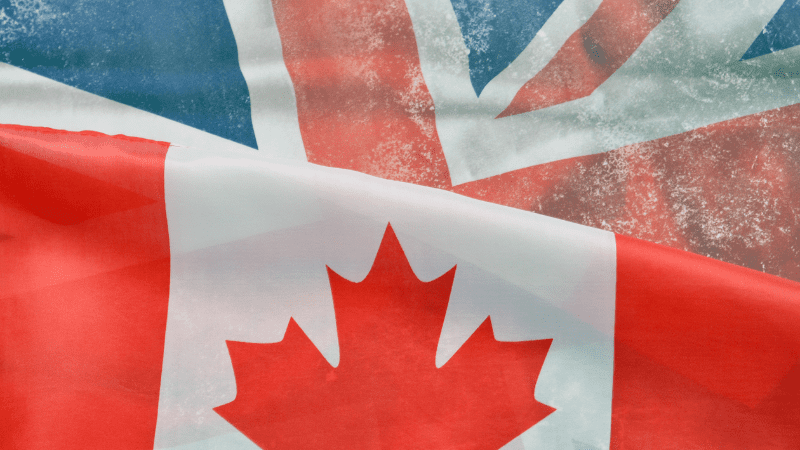By David Collins, February 5, 2024
The UK marked the fourth anniversary of Brexit last week and one of the bright spots in the country’s new era of independence has been its international trade policy. Almost 70 of the EU-era Free Trade Agreements (FTAs) have been rolled-over and two new agreements (Australia and New Zealand) have been signed. The UK also acceded to the megaregional Comprehensive and Progressive Agreement for Trans-Pacific Partnership (CPTPP), of which Canada is a founding member.
A rare trade mis-step occurred last week when the UK team walked away from negotiations with Canada for a revised UK-Canada FTA. The anticipated agreement aims to improve upon the UK-Canada Trade Continuity Agreement, which rolled-over the EU-Canada Comprehensive Trade and Economic Agreement (CETA) of 2017. The UK is Canada’s fourth largest trading partner, trade in goods and services between the two countries accounts for over $44 billion annually.
This is the first time the UK has suspended talks with a trade partner since formally leaving the EU. It is a disheartening turn of events for two long-standing Commonwealth allies and historic champions of free trade. It also says much about the current high-tax, over-regulating governments of both countries.
One of the major obstacles to completing the UK-Canada FTA is Canada’s notoriously protectionist dairy sector. The interim UK-Canada FTA kept imports on British cheese tariff- free for three years, resulting in annual export growth rates of around 15 per cent, but that arrangement expired last year.
Tariffs on British cheese are now a shocking 245 per cent – making British cheddar a delicacy like caviar or quail’s eggs. Unfortunately, Canadian dairy farmers have an outsized influence on Canadian politics, especially under Prime Minister Justin Trudeau. Following concessions permitted under the renegotiation of NAFTA, the Liberal government promised dairy farmers that it would not grant tariff free access to foreign cheese products again. Fearful that Canadian consumers will realize that cheese from other parts of the world might taste better, Canada’s dairy farmers are putting pressure on Liberals to keep their supply-managed sector out of the UK deal.
Another difficulty relates to the automotive sector, in particular the Rules of Origin required to ensure continued preferential access (zero tariffs) to each other’s markets. Rules of Origin determine whether or not products may be deemed to originate from one of the treaty partners so that preferential treatment may be granted. At the end of March UK businesses will lose the ability to cumulate EU content in goods they make and sell to Canadian customers. Automotive supply chains are highly integrated between UK and EU. From April on, any EU content will be classified as non-originating, meaning UK cars will not satisfy the origin requirements for preferential tariffs. Canada buys just 1.3 per cent of British cars (fewer than 8000 vehicles), but this could still hurt UK carmakers, particularly since their exports (e.g. Land Rover, E-Type Jaguar Series 1 and Aston Martin DB11) also face luxury taxes in Canada.
From Canada’s perspective, Canadian farmers are upset that the UK’s food inspection standards do not recognize Canadian food safety rules as equivalent to British ones. Canadian beef and pork exports were entitled to access the EU (and UK) markets under CETA, but these imports have largely failed to materialize because meat processing methods which are considered normal in North America are not approved by the UK. Bizarrely, the UK will not permit hormone treated beef to be sold in its stores. It is difficult to see why the UK still insists on this ban, particularly since there is no scientific evidence that hormone treated meat is harmful. A WTO panel ruled that the EU’s ban on hormone treated beef from the US was illegal years ago. Keeping the restriction in place is a painful example of the UK still reflexively following EU rules where there is nothing to be gained.
The impasse in negotiations between the UK and Canada may reflect the UK’s need to demonstrate its capacity to be a tough negotiator after perceived failings in relation to the Australia FTA, something which could also explain ongoing delays in finalizing the India FTA. Similarly, Canada may wish to compensate for its alleged weakness in supporting the UK’s accession to the CPTPP despite the hormone beef ban.
Yet as the cost of living escalates on both sides of the Atlantic it is increasingly hard to justify trade restrictions that raise prices and restrict choice for consumers. As bad as it is, there are valid concerns that the global embrace of protectionism, sometimes euphemistically called ‘industrial policy’ will only get worse. The UK seems intent to push ahead with carbon taxes on imports (copying yet another EU policy). While Canada’s current Liberal government, fixated like the UK’s Conservatives on net zero, is mostly sympathetic to carbon taxes, such policies may not find favour should a new (real) Conservative government secure a majority at the next Canadian federal election in 2025. It is not clear that a new UK Labour government will be as welcoming towards free trade as the current notionally Conservative government under Prime Minister Rishi Sunak, indeed it may be even more likely to erect barriers to trade in the form of senseless bans on products in the guise of health or protecting the environment.
The parties on both sides should act now and get back to the negotiating table.
(This is a revised piece initially published by the UK think tank Politeia – republished here with permission.)
David Collins is a professor of international economic law at City, University of London and a Senior Fellow at the Macdonald-Laurier Institute.






